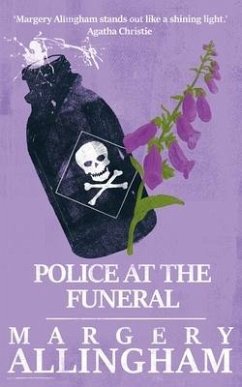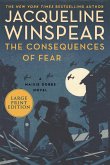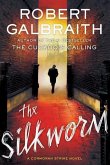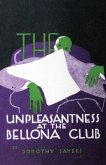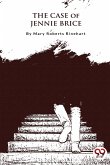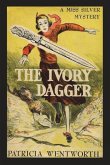From the Golden Age mystery author comes "a richly detailed and entertaining romp, with a fascinating resolution and an unconventional and winning sleuth" (Chicago Tribune). Albert Campion heads to Cambridge as a favor to a friend, whose fiancée is employed by the elderly Faraday family, to investigate the disappearance of her uncle Andrew. What the self-proclaimed "Deputy-Adventurer" finds is foul play of the most heinous kind: murder. Andrew is found floating in a river, bound and shot in the head. Needless to say, in a household of unlikable characters--presided over by an authoritarian widow--he's not sorely missed. But fear has pervaded the dour family, bringing up decades of suppressed hatreds, petty jealousies, and nasty impulses--all of which lead to a second shocking killing. As the number of Faradays dwindle, so should the number of suspects. But Campion discovers that in a family this dysfunctional, it's hard to stop what hatred has set in motion. Praise for Margery Allingham "Margery Allingham stands out like a shining light." --Agatha Christie "The best of mystery writers." --The New Yorker "Allingham was a rare and precious talent." --The Washington Post "Margery Allingham deserves to be rediscovered." --P. D. James, New York Times-bestselling author "Don't start reading these books unless you are confident that you can handle addiction." --The Independent From the Golden Age mystery author comes "a richly detailed and entertaining romp, with a fascinating resolution and an unconventional and winning sleuth" (Chicago Tribune). Albert Campion heads to Cambridge as a favor to a friend, whose fiancée is employed by the elderly Faraday family, to investigate the disappearance of her uncle Andrew. What the self-proclaimed "Deputy-Adventurer" finds is foul play of the most heinous kind: murder. Andrew is found floating in a river, bound and shot in the head. Needless to say, in a household of unlikable characters--presided over by an authoritarian widow--he's not sorely missed. But fear has pervaded the dour family, bringing up decades of suppressed hatreds, petty jealousies, and nasty impulses--all of which lead to a second shocking killing. As the number of Faradays dwindle, so should the number of suspects. But Campion discovers that in a family this dysfunctional, it's hard to stop what hatred has set in motion. Praise for Margery Allingham "Margery Allingham stands out like a shining light." --Agatha Christie "The best of mystery writers." --The New Yorker "Allingham was a rare and precious talent." --The Washington Post "Margery Allingham deserves to be rediscovered." --P. D. James, New York Times-bestselling author "Don't start reading these books unless you are confident that you can handle addiction." --The Independent
Hinweis: Dieser Artikel kann nur an eine deutsche Lieferadresse ausgeliefert werden.
Hinweis: Dieser Artikel kann nur an eine deutsche Lieferadresse ausgeliefert werden.

